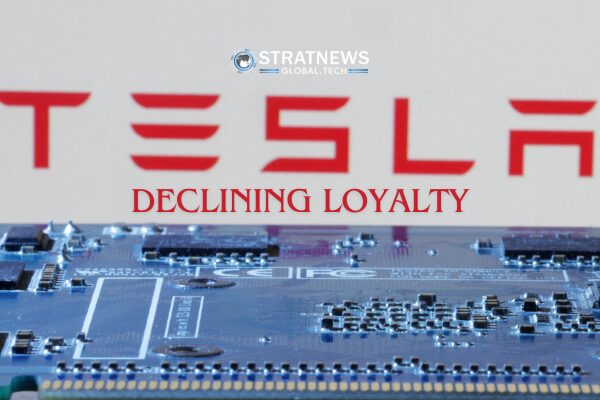Political Activism and Competition Erode Market Edge for Tesla
Tesla’s reputation for strong customer loyalty in the US is under pressure. According to new data from S&P Global Mobility, brand loyalty of Tesla consumers has sharply declined since CEO Elon Musk publicly endorsed Donald Trump in July 2024.
In June 2024, Tesla’s customer loyalty peaked, with 73% of existing Tesla-owning households buying another Tesla when purchasing a new car. Just one month later, that loyalty rate began to fall rapidly. It reached a low of 49.9% by March 2025—slightly below the industry average—coinciding with Musk’s involvement in Trump’s cost-cutting Department of Government Efficiency.
Tesla’s loyalty rate rebounded slightly to 57.4% in May 2025, surpassing the industry average but trailing behind Chevrolet and Ford, and only just matching Toyota. Tom Libby, an analyst at S&P, described the drop as “unprecedented,” noting he had never seen such a dramatic fall in loyalty over a short period.
Musk’s Political Shift and Its Impact on Brand Perception
Musk’s growing political involvement appears to have alienated part of Tesla’s core consumer base, many of whom are environmentally conscious and lean Democratic. Morningstar analyst Seth Goldstein said, “If they have Democratic leanings, then perhaps they consider other brands in addition to Tesla.”
Tesla’s ageing vehicle lineup and stronger competition from legacy carmakers like General Motors, BMW, and Hyundai have also contributed to the loyalty decline. The company’s only new release since 2020—the triangular Cybertruck—has not lived up to expectations.
Tesla CFO Vaibhav Taneja acknowledged setbacks during an April earnings call, citing production disruptions and incidents of vandalism against the brand. However, Musk downplayed demand concerns, attributing any sales issues to broader economic conditions.
Still, S&P data shows Tesla’s US sales fell 8% during the first five months of 2025. In Europe, where Musk’s political stance has drawn sharper criticism, sales plummeted 33% in the first half of the year.
Market Share Slipping as Customer Defections Rise
While Tesla remains the US leader in electric vehicle sales, its dominance is waning. Customer retention has become more difficult, and Tesla is gaining fewer new households than it loses. Once, Tesla attracted nearly five new households for each one lost to a competitor. That figure has dropped below two since February 2025.
Rivian, Polestar, Porsche, and Cadillac are now gaining more of Tesla’s customers than they lose to the EV pioneer, according to S&P data. Libby remarked, “The data shows clearly that the net migration to Tesla is slowing.”
This shift matters because retaining existing customers is far more cost-effective than acquiring new ones. S&P tracks actual vehicle registrations, providing a clearer picture than surveys alone.
Future of Tesla Tied to Autonomous Tech
Despite these challenges, some investors remain optimistic. Brian Mulberry of Zacks Investment Management believes Tesla’s future lies in robotaxis and licensing its autonomous driving systems. In June, Tesla began testing a limited robotaxi service in Austin for selected users.
“If Tesla can scale this technology,” Mulberry said, “there’s a case to be made that Tesla doesn’t need to sell cars and trucks anymore.”
As Tesla shifts focus from mass-market vehicle sales to autonomous technology, its ability to rebuild customer loyalty—and navigate political backlash—may define its long-term success.
with inputs from Reuters


